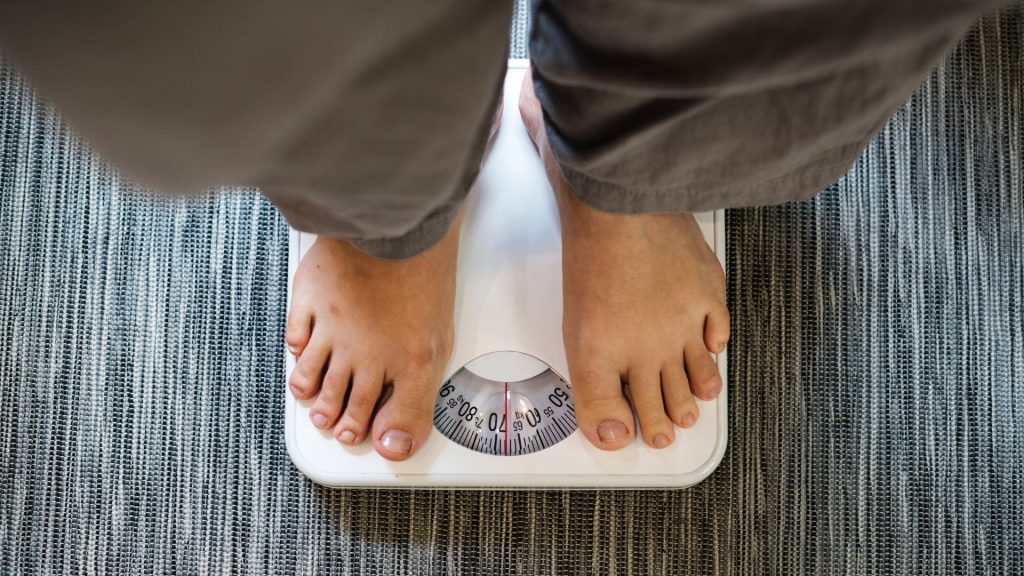Ritalin, a medication commonly prescribed for attention deficit hyperactivity disorder (ADHD), has been observed to cause weight loss in some individuals. This effect is primarily attributed to the drug’s influence on appetite suppression.
This article will explore the effects of Ritalin on the body, including how it impacts appetite, metabolism, and energy levels. We’ll also look at the potential risks of misuse, especially when Ritalin is used for off-label purposes like weight loss.
How Ritalin Works in the Body
Ritalin (methylphenidate) increases dopamine and norepinephrine levels in the brain, two neurotransmitters essential for regulating attention, focus, and impulse control. By stopping the body from reabsorbing these neurotransmitters, Ritalin enhances cognitive function, helping individuals with ADHD concentrate better and manage symptoms more effectively.
Ritalin is most effective when combined with behavioral therapy, educational support, and lifestyle changes as part of a comprehensive ADHD treatment plan.
How Ritalin Causes Weight Loss
Ritalin, a stimulant medication primarily used to treat attention deficit hyperactivity disorder (ADHD), can cause weight loss as a side effect. The drug affects the central nervous system by increasing the levels of dopamine and norepinephrine, two neurotransmitters that play a role in regulating appetite and metabolism.
One of the primary ways Ritalin can lead to weight loss is through appetite suppression. The increased levels of dopamine and norepinephrine can reduce feelings of hunger, causing people taking it to consume fewer calories throughout the day. This reduction in caloric intake can contribute to weight loss over time.
Ritalin’s stimulant properties can increase energy levels and alertness. This heightened energy may lead to increased physical activity, which can further promote weight loss by increasing the number of calories burned.
It is important to note that the extent of weight loss experienced while taking Ritalin can vary from person to person. Factors such as individual metabolism, dosage, and duration of use can also influence the drug’s impact on weight. Some individuals may experience significant weight loss, while others may notice little to no change in their weight.
While Ritalin can cause weight loss, it isn’t approved by the FDA as a weight loss medication. Using Ritalin solely for the purpose of losing weight is considered misuse of the drug and can lead to serious side effects and health risks.
Risks and Concerns
Ritalin should only be taken as prescribed by a healthcare provider and for its intended purpose of managing ADHD symptoms. Regular monitoring of weight and growth during Ritalin treatment is essential, especially for children and adolescents.
One significant concern is the impact on growth and development. Consistent weight loss can interfere with the essential growth processes in younger individuals. Ritalin-induced weight loss may lead to nutritional deficiencies, which can negatively affect overall health.
If weight loss becomes excessive or problematic, it’s crucial to communicate these concerns with a healthcare provider. They can make appropriate adjustments to the treatment plan to manage both ADHD symptoms and potential side effects, such as weight loss.
Misuse of Ritalin for the purpose of weight loss is another concern. Using the medication improperly or without a valid prescription can result in serious health issues.

Ritalin Addiction
Ritalin addiction can develop when the medication is misused—taken in higher doses, more frequently, or in ways not prescribed, like snorting or injecting. Because Ritalin is a stimulant that boosts dopamine levels in the brain, it can create feelings of euphoria, increased energy, and focus, which some people chase.
Over prolonged use, the brain may start to rely on the drug to feel “normal,” leading to physical dependence and psychological cravings. What begins as a study aid or performance boost can quickly spiral into addiction if not used responsibly.
Managing and Monitoring Weight Changes
Healthcare providers should regularly monitor weight and overall health during treatment, making dietary adjustments as needed to maintain balanced nutrition. Timing of medication doses should be considered to minimize appetite disruption and support regular meal patterns. Significant weight loss or growth changes require prompt attention, and periodic “drug holidays” may be recommended to assess effects. Maintaining a balanced nutritional approach is essential for overall well-being throughout treatment.
Can Ritalin Cause Weight Gain?
While Ritalin is more commonly associated with weight loss, in some cases, Ritalin may lead to weight gain, particularly during the initial adjustment period or when the medication is discontinued.
One of the primary reasons for potential weight gain is the rebound effect on appetite. When the medication is stopped, the individual’s appetite may return to normal or even increase, resulting in heightened hunger and potential overeating. This can contribute to weight gain, especially if the person hasn’t developed healthy eating habits or portion control.
Final Thoughts from Northwoods Haven Recovery
Ritalin, a stimulant used to treat ADHD, can cause weight loss in some individuals due to its appetite-suppressing effects, especially early in treatment or with dosage changes. However, weight loss is a side effect, not the medication’s purpose, and may not affect everyone. Significant weight changes should prompt consultation with a healthcare provider, and regular monitoring of weight, growth, and nutrition is crucial to ensure patient well-being, especially in younger patients.
At Northwoods Haven Recovery, we believe in safe, responsible treatment, especially when it comes to medications like Ritalin. Our compassionate, experienced team is here to support families in navigating medication risks, monitoring health, and making informed decisions.



